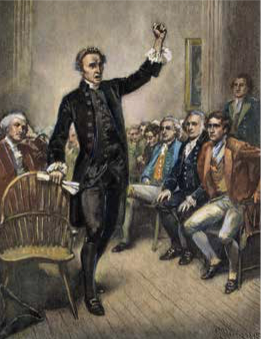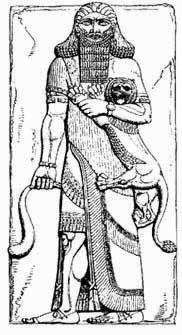Part One: The Biblical Purpose of Government
Chapter 5: Tyrants — God’s Enemies
Just as tyrannical governments operate according to Satan’s lies in opposition to God’s design for civil government, so rulers of these governments—tyrants—act in enmity against God and incur His wrath upon both themselves and the people that support their rebellious leadership (2 Chronicles 19:2). They operate on the belief that man, through the shaping power of the state alone, can be perfected, and wickedness, evils, and sufferings (as defined by the state) can be purged from society and a utopia created. This is in defiance of the gospel message. If creation indeed exhibits God’s glory and wisdom, then the social order, like everything else, attests to the existence of divinely placed, harmonious laws that vindicate the ways of God to man.
God’s Word uses strong language to describe His opinion of such rulers. Psalm 109:8 says, “Let his days be few; and let another take his office.” Proverbs 16:12 states that “it is an abomination to kings to commit wickedness.” Proverbs 17:15 (“He that justifieth the wicked, and he that condemneth the just, even they both are abomination to the Lord”) and Isaiah 1:23-24 (“Thy princes are rebellious, and companions of thieves: every one loveth gifts, and followeth after rewards: they judge not the fatherless, neither doth the cause of the widow come unto them. Therefore saith the Lord, the Lord of hosts, the mighty One of Israel, Ah, I will ease me of mine adversaries, and avenge me of mine enemies”) further assert the principle that “I the Lord love judgment, I hate robbery” (Isaiah 61:8). In order to warn nations about the consequences of following tyrants, the Scriptures list the character qualities and conduct by which they are identified.
Character
Isaiah 1:21-31 labels tyrants as “rebellious,” “companions of thieves,” those who “loveth gifts, and followeth after rewards,” as well as the Lord’s “adversaries” and enemies,” “transgressors,” “sinners,” and “they that forsake the Lord.” According to Isaiah 5:20-24, tyrants “are wise in their own eyes, and prudent in their own sight,” “are mighty to drink wine, and men of strength to mingle strong drink,” and “have cast away the law of the Lord of hosts, and despised the word of the Holy One of Israel.” Isaiah 13:11 says, “And I will punish the world for their evil, and the wicked for their iniquity; and I will cause the arrogancy of the proud to cease, and will lay low the haughtiness of the terrible.” Here “terrible” could also be translated as “tyrants” or “despots”; tyrants are marked by haughtiness.
Job 34:27-30 says that tyrants are those that have “turned back from him, and would not consider any of his ways” and are marked by hypocrisy. Proverbs 28:16 describes tyrants as lacking understanding: “The prince that wanteth understanding is also a great oppressor.” Ecclesiastes 10:16 teaches that immaturity and valuing pleasure before work are also marks of tyrants: “Woe to thee, O land, when thy king is a child, and thy princes eat in the morning!” Micah 2:1 adds that they obsessively plan to accomplish wicked schemes because they believe that “might makes right.” “Woe to them that devise iniquity, and work evil upon their beds! When the morning is light, they practise it, because it is in the power of their hand.”
Christ also mentioned some of the qualities of tyrants. In Luke 22:25-26 He said that “the kings of the Gentiles exercise lordship over them; and they that exercise authority upon them are called benefactors.” Jesus tells a parable in Luke 18:1-5 in which He described a judge who “feared not God, neither regarded man” and whose only motive for enforcing coercive justice was personal welfare.
Conduct
At God’s direction, the prophet Samuel warned the people of Israel of the “manner” of a tyrannical king (1 Samuel 8:11-17):
He will take your sons, and appoint them for himself … he will take your daughters … he will take your fields, and your vineyards, and your oliveyards, even the best of them, and give them to his servants. And he will take the tenth of your seed, and of your vineyards, and give to his officers, and to his servants. And he will take your menservants, and your maidservants, and your goodliest young men, and your asses, and put them to his work. He will take the tenth of your sheep: and ye shall be his servants.
Job 34:27-30 states that tyrants: “cause the cry of the poor to come unto [God]” and ensnare the people over whom they rule. Psalm 58:2 says to the tyrant: “Ye weigh the violence of your hands in the earth.” A tyrant is also said to be “he that justifieth the wicked, and he that condemneth the just” (Proverbs 17:15).

forget God that
tyrants forge their
chains.”
—Patrick Henry
Jeremiah also described the conduct of tyrannous rulers: They do not “execute judgment between a man and his neighbor,” they oppress “the stranger, the fatherless, and the widow,” shed “innocent blood,” “walk after other gods,” “steal,” “murder,” “commit adultery,” and “swear falsely” (Jeremiah 7:5-9); a tyrant “buildeth his house by unrighteousness,” “useth his neighbour’s service without wages, and giveth him not for his work,” builds himself a large and expensive house, and his eyes and heart “are not but for thy covetousness, and for to shed innocent blood, and for oppression, and for violence, to do it” (Jeremiah 22:13-14, 17). Finally, in Micah 2:2, the tyrants are described as those who “covet fields, and take them by violence; and houses, and take them away: so they oppress a man and his house, even a man and his heritage.”
Examples
 Throughout Scripture, the wicked kings of the earth consistently advanced and
promoted themselves to the point of demanding to be worshipped as gods. This
started with the first human king, Nimrod (Genesis 10). He built the ancient
cities of Babel and Nineveh (10:8-12), among others, and became a deity in the
Babylonian religion. There is a traceable progression of human god-kings
straight through both testaments of the Bible: Moses confronted Pharaoh, and all
the kings in that Egyptian line were considered gods; Babylonian, Persian, and
Greco-Macedonian kings demanded worship; Ezekiel rebuked the ancient king of
Tyre for desiring to set his throne above God’s; Roman Caesars were worshipped
as divine beings, and Nero considered himself to be the incarnation of Apollo
the sun god; and Daniel prophesied of a future king—the “little horn”—who would
exalt himself above God.
Throughout Scripture, the wicked kings of the earth consistently advanced and
promoted themselves to the point of demanding to be worshipped as gods. This
started with the first human king, Nimrod (Genesis 10). He built the ancient
cities of Babel and Nineveh (10:8-12), among others, and became a deity in the
Babylonian religion. There is a traceable progression of human god-kings
straight through both testaments of the Bible: Moses confronted Pharaoh, and all
the kings in that Egyptian line were considered gods; Babylonian, Persian, and
Greco-Macedonian kings demanded worship; Ezekiel rebuked the ancient king of
Tyre for desiring to set his throne above God’s; Roman Caesars were worshipped
as divine beings, and Nero considered himself to be the incarnation of Apollo
the sun god; and Daniel prophesied of a future king—the “little horn”—who would
exalt himself above God.
Summary
In this chapter we learned that (1) God has warned us of the specific traits that mark a tyrant and (2) the Scriptures are filled with examples of tyrants ruling in rebellion against God.